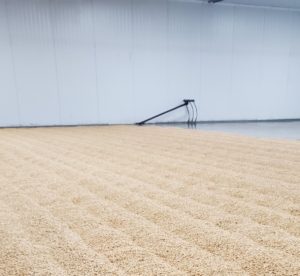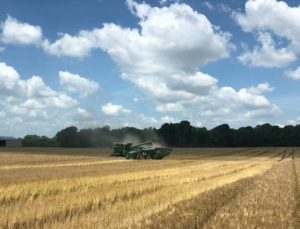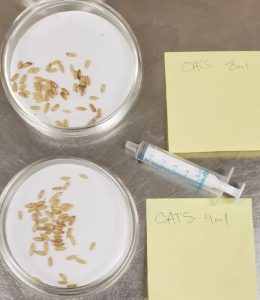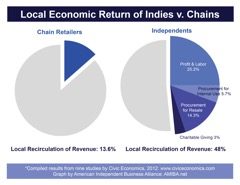It all comes back to geology
– Brian Simpson
When Brian and I worked together as environmental consultants, that quote was a common refrain. Brian, being a geologist, always took smug satisfaction in the fact that his chosen field had a significant impact on mine (stream and wetland restoration). In short, you have to understand what is going on underneath the surface before you can restore your target ecosystem.
As it turns out geology also plays an important role in the terroir of wine and possibly barley. The parent or source material for a soil type contributes to the drainage rate, nutrient retention, and pH. Research has shown that well drained soils promote accelerated rates of photosynthesis which translates to higher sugar concentration in grapes. Soils with elevated levels of potassium and calcium also promote the accumulation of sugar. Slightly alkaline to neutral soils promote nutrient uptake which is essential for plant growth and fruit quality.
Do these same factors impact barley flavor?
The short answer is we think so!
Early on, we noticed subtle differences in finished flavor from barley grown in different states. Malted Thoroughbred from coastal Virginia was typically grassier and floral. Malted Thoroughbred from Kentucky displayed a richer, earthy flavor. The Virginia barley was grown in sandy, well drained soils in a microclimate that is warmer and sunnier than the Kentucky site. Could that explain the difference in finished malt flavor?
At the present time, we are working with five barley varieties that are being grown in three distinct physiographic locations. Coastal Plain, Upper Piedmont, along with the Ridge and Valley section of the Appalachians in Eastern Tennessee. This covers sandy marine deposits, clay loam of volcanic origin, and silt loam from ancient limestone.
Elevations range from 50’ to almost 1,000’ above sea level. This contributes to an average difference of 8 degrees Fahrenheit across the region. Average rainfall varies from 47 to 52 inches. Harvest dates range from late May to late June.
In short, we have different geomorphology, notable climate variations, and soil composition coupled with an expanding catalog of barley varieties…..all of the building blocks to establish a strong case for a Southern Terrior.
Who knows, maybe we’ll have an Appalachian Appellation in the future….stay tuned!











